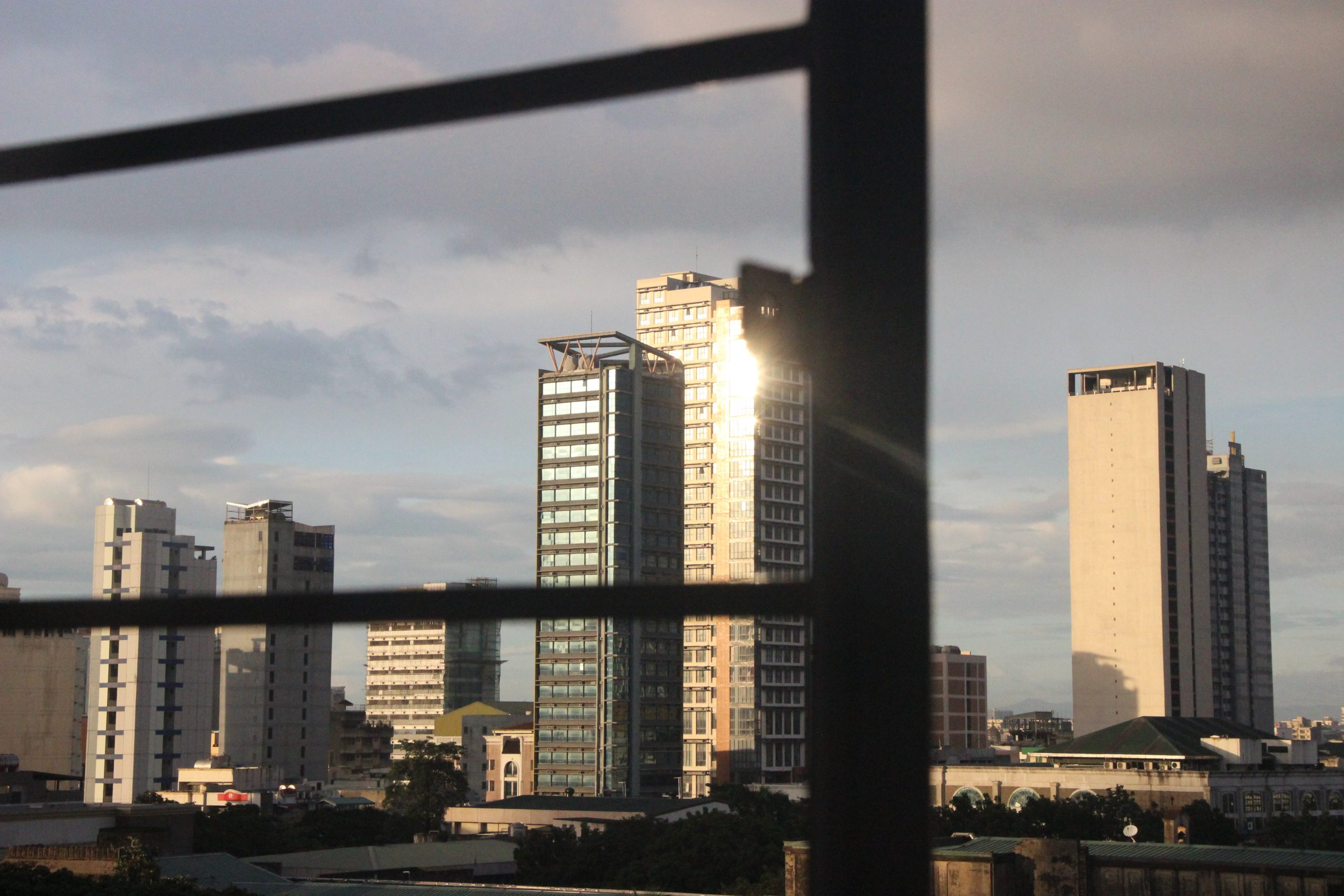
WHEN THE University announced the gradual return of in-person classes, architecture freshman Diane Sombilon said she felt relieved to finally go back to normal.
However, the latest inflation figure made Sombilon, who lives in Las Piñas, hesitate to rent a dorm and eventually return to campus.
The Philippine Statistics Authority (PSA) has been reporting about rising inflation in the past few months. The country’s inflation – the rate of the increase in the prices of goods and services over a given period – climbed to a 14-year high of 7.7% in October. It was higher than the previous year 6.9% posted in September and the 4% recorded in October last year.
In November, the PSA reported anew that the inflation rate spiked to 8% due to increased costs and services.
“Although I was first relieved that things would eventually return to normal, the inflation made me feel terrible and apprehensive that my parents would find it tough to meet our expenses,” Sombilon told the Flame.
Sombilon, who lives in a dormitory near the University, is just one of the many Thomasian dorm-renters experiencing the struggle of living alone during a worsening inflation. It forced her to reduce her budget for basic necessities as most of her savings goes to her budget meals and rental expenses.
“I choose places to eat like karinderya where there are budgeted meals… I also used my personal savings to pay for the supplies I might need for my course in architecture and in case one of the dorm’s supplies runs out.” she explained.
According to the National Economic and Development Authority, gas, transportation, food, household maintenance, renting and housing, and communication were among the main contributors of inflation.
Budgeting
Like Sombilon, political science sophomore Ysabelle Andante felt the unfavorable effects of inflation. Andante, who rents a dorm in Padre Noval, realized the difficulties of making both ends meet.
“Despite my raise in allowance and additional privileges from my family, I struggle [a lot] to budget. I’m already back in my dormitory, and every day is a realization of how difficult it is to earn money and allocate it to the most essential,” Andante said.
Andante, who came from Bulacan, was forced to choose cheaper alternatives for her daily needs.
“I prefer to cook meals instead of buying out. It helps me save a lot because I can measure how much food I need for the day,” she said.
“I would prefer to walk, or ride jeepneys or buses, instead of [using] Angkas or Grab,” she added.
In terms of her utility bills, Andante said she tries her best to minimize the use of appliances whenever she can. However, there are things that are “non-negotiable” like the internet.
“The Internet bill is non-negotiable. It is a fixed ₱2000 per month. I tried prepaid wi-fi and it costs around₱300 per week, but the signal can be problematic,” she said.
Medical biology senior RJ Cañedo, who rents a dormitory near the University, said “choosing the needs over wants must be prioritized.”
“I should be aware of how I spend my money by liquidating my receipts and expenses. I should consume less in order to spend less,” Cañedo told the Flame.
Sombilon, for her part, carefully chooses places with “student-friendly” prices and stays in her dorm to study to avoid unnecessary expenses. According to her, the strategy helped her pay for her school supplies and personal needs.
Not yet over
Economics instructor Loisa Cruz said commodity prices may increase further in the future, a development that will surely pose burdens to the working class.
She said the rising unemployment rate serves as another sign of worsening economic conditions.
The Philippines’ unemployment rate hit 5% in September, the lowest since October 2019, when it stood at 4.5%. The September figure translated to 2.5 million jobless Filipinos, according to the PSA.
Most sectors opted to reduce the number of their employees due to the increased business expenses, Cruz said.
The economics professor added that unless the government and private sector find a way to pull the inflation down in three months, Thomasian dormitory renters should “start praying, be resilient, and make their belts more tightened.”
Compromise
Cañedo admitted that budgeting also entails compromising even the most important things. There were times that he had to choose between his necessities and school requirements.
“In budgeting my meals and basic necessities like personal hygiene, alongside school requirements, one will always be compromised. After moving in, I must be frugal with money and be stringy with how I use my stuff,” he said.
Andante needed to restrain herself from “overindulging” with the things that would leave her “empty-handed” the next day.
“I realize how unpredictable the situation is if I spoil myself too much; if I’m going to be having decent food tomorrow or have the money to travel back to Bulacan,” she said.
Her limited budget has also forced Sombilon to set aside the quality of the products she is buying.
“I would have to choose among brands that sell their products for less price rather than selecting high-quality items from well-known companies,” she added.
Cruz advised Thomasian renters to consider miscellaneous expenses when choosing a dorm because most landlords might use inflation as a way to increase their rent fees.
“Most landlords are going to be extra keen on electricity and internet charges. At first, they’re not going to increase the price to their tenants because they’re just happy they got occupants, but over time, they will surely increase the prices,“ she said.
Why is it worth renting dorms?
Despite the budgeting difficulties, students interviewed by The Flame said they still prefer living in dormitories because it is the environment that “works best” for them.
A study from the Journal of Student Affairs Research and Practice found that living in dorms is a great opportunity to boost the student’s engagement in collaborative learning, discussions with diverse others, and student-faculty interaction.
Setting aside her hesitations, Sombilon said she would still deal with the difficulties of budgeting just to attend face-to-face classes, believing that in-person setup would help her effectively acquire first-hand knowledge.
“When it comes to education, I think we shouldn’t restrict ourselves to having the best facilities and resources since it would affect our performance,” she said.
Andante believes living independently is “incomparable” and a good preparation for her in life.
“We only have four or five years of college before we begin working and living outside of our comfort zone will make you realize your boundaries, potential, and things you need to figure out,” she said. F – Axel Aldana
Editor’s Note: The magazine issue version of this article only cited the September and October inflation rate. The November 2022 inflation rate was added to this story on Dec. 8. This article was originally published in Vol. 58, Issue No. 1 of The Flame. View the entire issue through this link.



